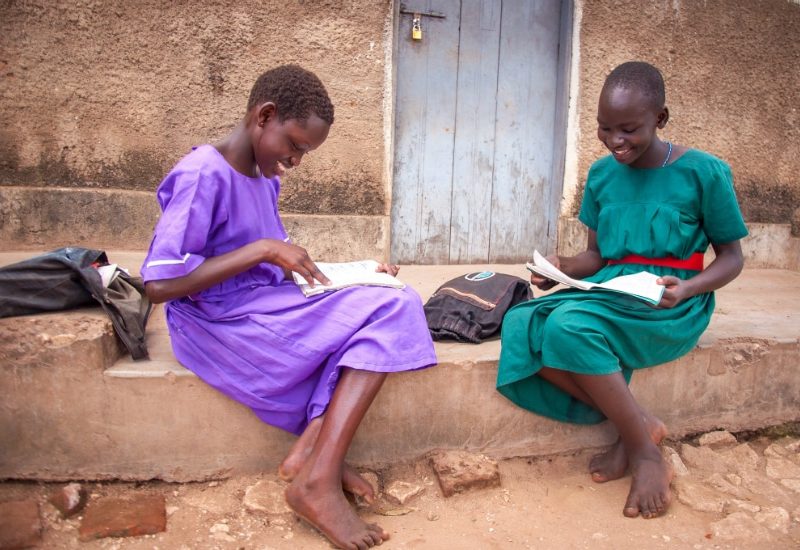
When 17-year-old Carol Pola isn’t in school or working on homework, she’s not found playing sports and enjoying free time as her brother would be, but instead at her own home, watching over her younger sister, Patience.
With a working, single mother in need of childcare assistance, Pola feels she has no choice but to step up. Her older brother, despite his capability, is discounted as an option for the family babysitter simply because he is a boy.
“I don’t get the chance to hang out with my friends, get a real job, or partake in any school sports since someone needs to watch over Patience and that someone is always me,” Pola said in an email interview from her home in West Jordan, Utah. “It would be nice to have my brother step up once in awhile so I could actually have some time to do what I want.”
The fact that Patience responds to her sister better than her brother doesn’t help the situation. “While I enjoy the extra time I get to spend with my sister, this situation has simply become unfair,” Pola said.
Pola’s situation isn’t unusual and one reason for this lack of brothers as babysitters, says , a University of Texas professor of women’s and gender studies, is the opportunity for practice.
“Children and adults develop the skills that they practice…the same is true with childcare,” Bigler said in an email interview. “If society demands that daughters but not sons practice childcare, then only daughters will get good at it, thereby becoming the only ones asked to babysit.”
By creating a pattern where only the daughters of a family are presented with this opportunity to learn, the unfairness of the situation is only intensified, but it is not the only factor: familial relationships also tend to trap these girls into the situation.
“When I am asked to babysit, even when my older brother is in the house, I say ‘yes’ because I don’t want to disappoint my parents,” said Rhiannon Tunney, 17, from Midvale, Utah. She has become the go-to babysitter for her younger brother, while her older brother is merely looked to as a last resort replacement.
Pola has also felt guilted into saying yes. “I usually just let it slide, since it’s family,” Pola said. “With my mom working so hard to provide for all of us, this is something I feel like I should do to make it a little bit easier for her, even though it makes some things less enjoyable for me.”
With neither girl comfortable to approach their parents on the matter and not receiving pay for the work, the situation’s unfairness has only been amplified.
“Boys and girls need to be given equal opportunities to develop child care skills, so they can equally contribute to the family by helping their parents,” Bigler said. “The current situation only deprives boys of necessary skills while overloading the daughters.”
With fewer than 3 percent of babysitters identified as male, according to Priceonomics, the equal opportunities Bigler speaks of are not being applied on a broader scale, much less in intermediate families.
“I never really minded having to watch my little brother, I was simply helping my parents out, but this doesn’t mean my older brother should be exempt from this responsibility,” Tunny said. “There should always be an equal amount of distribution between both genders, no matter the situation.”


